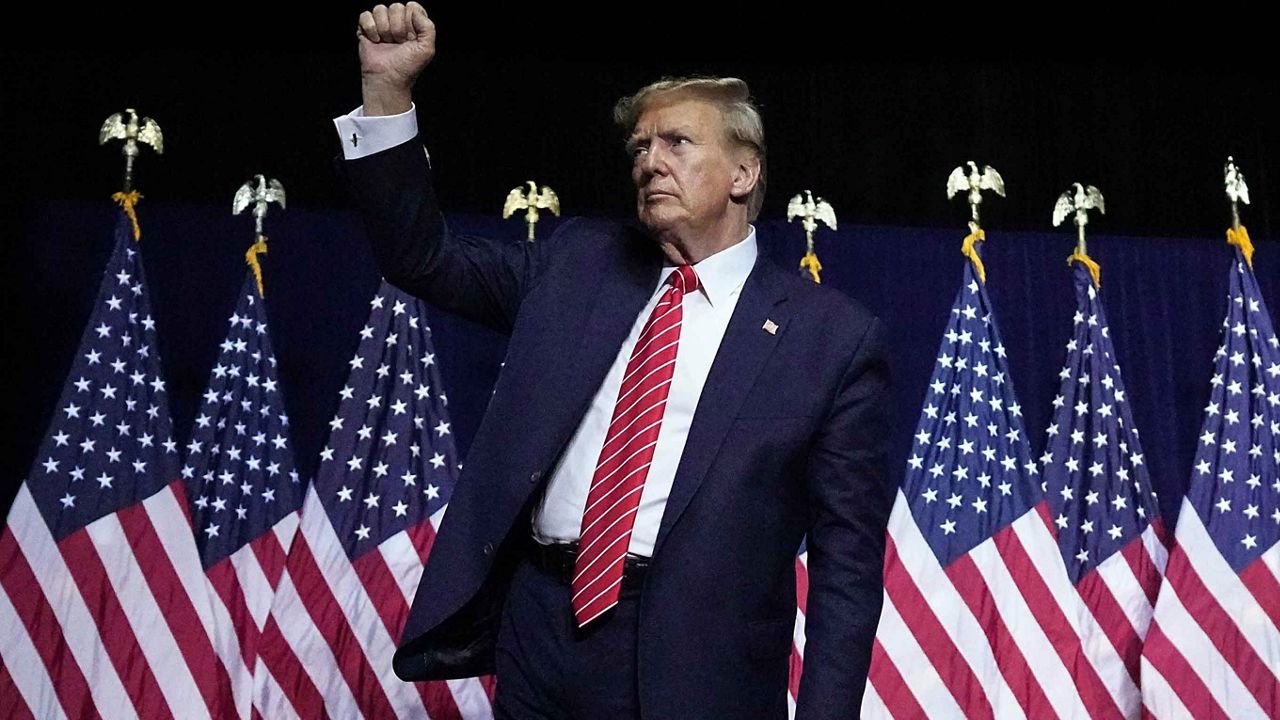A Georgia appeals court has halted the election subversion case in the state against former President Donald Trump and others while it considers a request to remove Fulton County District Attorney Fani Willis, all but ensuring any trial will not begin until after November's presidential election.
The Georgia Court of Appeals on Wednesday issued the order, which will prevent Fulton County Superior Court Judge Scott McAfee from moving forward with pretrial motions while the appeal is pending.
The Court of Appeals docketed the case on Monday and tentatively set an Oct. 4 date for oral arguments. The court will then have until mid-March to rule, and the losing side will then be able to appeal to the Georgia Supreme Court. Judges E. Trenton Brown III, Todd Markle and Ben Land, all appointed to the bench by Republican governors, are set to hear the case.
“We look forward to presenting argument before Judges Brown, Markle, and Land on why this case should be dismissed and Fulton County DA Willis should be disqualified for the trial court’s acknowledged 'odor of mendacity' misconduct in violation of the Georgia Rules of Professional Conduct,” said Trump attorney Steve Sadow in a statement on social media on Monday.
A spokesperson for Willis declined to comment on the appeals court ruling on Wednesday. Trump's campaign did not immediately comment.
The Georgia election subversion case alleges that the Republican ex-president and a slew of co-conspirators participated in a “criminal enterprise” to overturn his loss to Joe Biden in the Peach State in 2020.
Trump and 18 others were charged by Fulton County District Attorney Fani Willis last year; all of them were charged under Georgia’s Racketeer Influenced and Corrupt Organizations (RICO) Act. Trump faces nine other charges in the case; he has pleaded not guilty and denied any wrongdoing.
Among those charged alongside Trump were former New York mayor Rudy Giuliani and former White House chief of staff Mark Meadows. Four co-defendants have pleaded guilty and agreed to work with prosecutors, the rest have pleaded not guilty.
The case has been delayed, in part, over the revelation that Willis had a romantic relationship with special prosecutor Nathan Wade. In March, Superior Court Judge Scott McAfee ruled that Willis did not have to be removed from the case, but either she or Wade would need to step aside; Wade resigned within hours.
McAfee wrote that “an odor of mendacity remains.” He said “reasonable questions” over whether Willis and Wade had testified truthfully about the timing of their relationship “further underpin the finding of an appearance of impropriety and the need to make proportional efforts to cure it.” He said Willis could remain on the case only if Wade left, and the special prosecutor submitted his resignation hours later.
The allegations that Willis had improperly benefited from her romance with Wade resulted in a tumultuous couple of months in the case as intimate details of Willis and Wade’s personal lives were aired in court in mid-February.
Wednesday's decision is a victory for Trump, who has sought to delay the criminal proceedings against him, though it comes just days after a New York jury found him guilty of 34 felony counts of falsifying business records in his hush money trial.
The other two criminal cases against Trump — a pair of federal cases, one in Washington, D.C., accusing him of working to overturn the results of the 2020 presidential election, the other in Florida alleging that he mishandled classified documents and hampered the federal government’s efforts to retrieve them — have faced similar delays.



